- Wireless Networks Lab/
- People/
- Staff
Staff
Felice Manlio Bacco
F. Manlio Bacco (Information Eng., Politecnico di Bari; PhD Information Engineering and Science, University of Siena) has worked as a researcher at ISTI WNLab since 2012, and he has joined the EU Joint Research Centre (JRC) as member of the T.1 Digital Economy Unit on October 2023.
His research interests cover the Internet of Things, with a focus on interoperability, as well as network and system architectures in several scenarios. Additional research interests are related to data spaces, digital twins, and digital agriculture in several national and EU-funded activities, taking into account social, economic, and environmental impacts.
Paolo Baronti
Paolo Baronti received his M.Sc. in Computer Science from the University of Pisa in 2004.
He has been employed as a technical staff member at ISTI-CNR since 2017 after several years spent as a software developer in private and public companies.
He provides software development as well as technical and administrative support to the Wireless Network Laboratory.
Paolo Barsocchi
Paolo Barsocchi received the M.Sc. and Ph.D. degrees in information engineering from the University of Pisa, in 2003 and 2007, respectively. Since 2017, he has been the Head of the Wireless Networks Research Laboratory. He is currently a Researcher with the Information Science and Technologies Institute (ISTI), National Research Council (CNR), Pisa, Italy.
He has coauthored more than 150 articles and has published in international journals and conference proceedings. His research interests include the IoT, cyber-physical systems, indoor localization, and radio channel signal processing. He is a member of numerous program committees and editorial board of international journals and program chair of several conferences.
Pietro Cassarà
Pietro Cassarà received his M.Sc. degrees in Telecommunication and Electronic Engineering from the University of Palermo in 2005 and his PhD degree in 2010, jointly with the State University of New York. Nowadays, he is a permanent staff member of the Institute of Science and Information Technologies (ISTI) at the National Research Council (CNR) and a permanent member of the National Inter-University Consortium for Telecommunications (CNIT), Pisa, Italy. Since 2017, he has been a temporary staff member of the CMRE lab at the NATO of La Spezia. He is Co-Chair of the National IPv6 Council from 2021 and Vice-Chair at the European Telecommunications Standards Institute for the IPE and NTI activities related to 5G systems and NTN.
Since 2022, he has been coordinating the joint CNR-Huawei laboratory for research related to AI for communication on 5/6G technology.
His research interests include optimized automatic controls and machine learning theory for wireless sensor networks, distributed cyber-physical systems, and distributed learning architectures for networking. As part of his research activities, he has had the opportunity to participate in and coordinate activities in European and Nationally funded projects and international projects founded by the European Space Agency and NATO
Antonino Crivello
Antonino Crivello is a researcher at the Institute of Information Science and Technologies, National Research Council, Italy, since 2014. He received his M.Sc. degree in Robotics and Automation Engineering, University of Pisa, in 2013 and his PhD in Information Engineering and Science, University of Siena, in 2018.
He is involved in the organization of IPIN competitions and is associate editor of the IEEE journal of Indoor and Seamless Positioning and Navigation. He also serves as associate editor of Elsevier journal Expert Systems with Applications. He has been a TPC member of the IPIN conference since 2017.
His research interests cover the Internet of Things, with a focus on interoperability, systems evaluation, open research data, and machine learning applied in different scenarios. Additional research interests are related to data spaces and digital agriculture in EU-funded activities.
Francesco Furfari
Michele Girolami
Michele Girolami received his M.Sc. and Ph.D. in Computer Science from the University of Pisa respectively in 2007 and 2015. Currently he joins ISTI-CNR as Researcher with the Wireless Network Laboratory. He participates to several EU projects and as national research projects.
His research interests are mainly focused on indoor localization, proximity detection, pervasive computing and Internet of Things. He also supports the organization of the IPIN competition and he has been serving with several roles for the organization of workshops and international conferences.
Alberto Gotta
Alberto Gotta has been a staff member of the Information Science and Technologies Institute (ISTI) of the Italian National Research Council since 2005. He has been the research leader of the “Communication Protocols and Architectures” section of the Wireless Network Laboratory at ISTI since 2015. From 2002 to 2005, he has been with the National Inter-University Consortium for Telecommunications at the Research Unit in Genoa at the Politecnico School of the University of Genoa. He has also been a project reviewer for the Italian Ministry of Economic Development since 2013. He is a member of the ISTI-IIT CNIT Research Unit and the Italian Group of Telecommunications and Information Technologies (GTTI). He is also a member of the ComSoc Satellite & Space Communications Technical Committee and the Machine Learning for Communications, Network Intelligence, and Aerial Communication Emerging Technologies Initiatives. He has been participating in the IEEE International Network Generations Roadmap (INGR), belonging to the INGR Satellite Working Group.
His primary research interests include Non-Terrestrial Networks, Wireless Networks, 5G and 6G, SDN/NFV, Edge computing, Artificial Intelligence, and Machine Learning techniques applied to communications and networking. He has been participating in several projects funded by the European Community (FP6, FP7, H2020, HE), in National Recovery and Resilience Plan (PNRR) projects, in National Industrial Innovation / Operation Plan projects (PII/PON), in Regional projects (POR/FAR FAS), and in European Space Agency projects (ARTES). He has co-authored more than 100 papers on transactions, journals, conference proceedings, and scientific reports. He has participated in the technical program committees of the ComSoc flagship conferences and the editorial boards of journals and was a reviewer of the most prestigious IEEE Transactions and Magazines in the field.
Davide La Rosa
Davide La Rosa received the M.Sc. degree in Computer Science and Networking from the University of Pisa and the Scuola Superiore Sant’Anna, Pisa in 2012. In 2013 joined the Institute of Information Science and Technologies of the Italian National Research Council, where he currently works in the research staff as a technologist.
His research interests include pervasive wireless sensor networks, IoT architectures, distributed data acquisition and processing platforms for intelligent environments.
Fabio Mavilia
Fabio Mavilia received the Graduate degree in electronic engineering from the University of Pisa, Pisa, Italy, in 2012. As a member of the Wireless Network Laboratory, he currently holds the position of Researcher with the Institute of Information Science and Technologies, National Research Council of Italy.
His research interests include Internet of Things and Cyber Physical Systems, focusing on Ambient Intelligence. In particular, his work involves developing embedded platforms for wireless sensor networks and algorithms for indoor activity recognition and indoor localization, by using unobtrusive sensing devices based on radio frequency technologies.
Filippo Palumbo
Francesco Potortì
Francesco Potortì is a senior researcher at the ISTI-CNR institute in Pisa, Italy, where he has worked since 1989 in the field of satellite communications and signal propagation, then gradually moving to terrestrial and then to indoor localisation. He has organised the 2011--2013 EvAAL competitions; defined the EvAAL framework; organised the IPIN competitions from 2014 to 2017; chaired the tenth edition of the IPIN conference in 2019 and the IPIN competitions 2019-2023. He is a member of the IPIN steering board and is associate editor-in-chief of the IEEE journal of Indoor and Seamless Positioning and Navigation.
His current research interests include RSS-based indoor localisation, interoperability and evaluation of indoor localisation systems. He co-authored more than ninety peer-reviewed scientific papers.



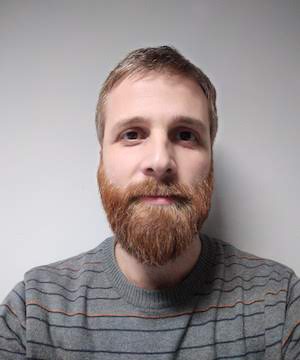 Felice Manlio Bacco
Felice Manlio Bacco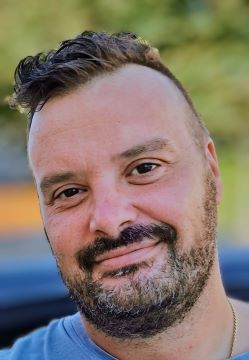 Paolo Barsocchi
Paolo Barsocchi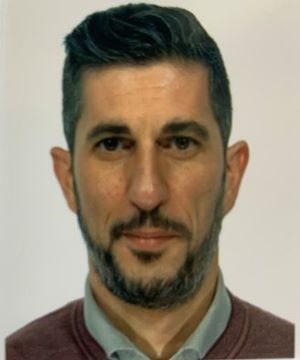 Pietro Cassarà
Pietro Cassarà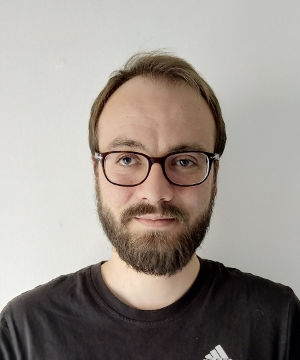 Antonino Crivello
Antonino Crivello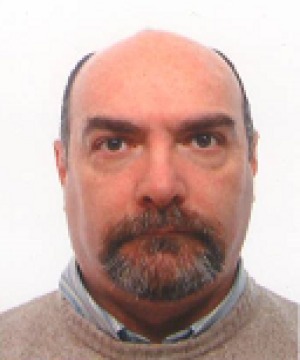 Francesco Furfari
Francesco Furfari Michele Girolami
Michele Girolami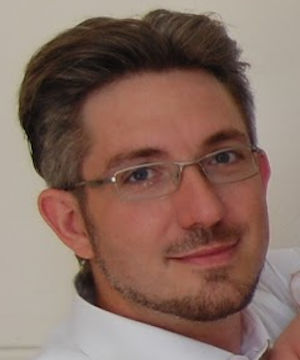 Alberto Gotta
Alberto Gotta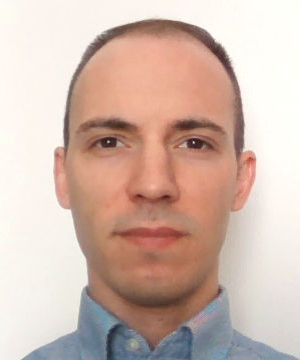 Davide La Rosa
Davide La Rosa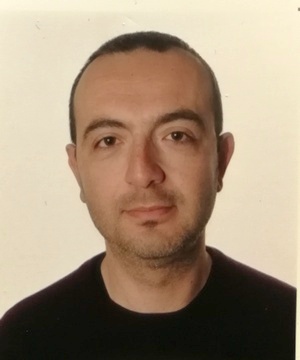 Fabio Mavilia
Fabio Mavilia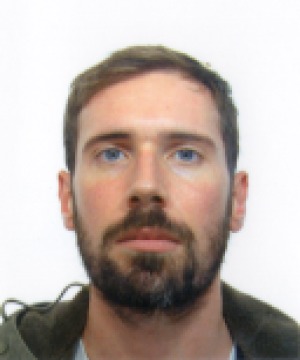 Filippo Palumbo
Filippo Palumbo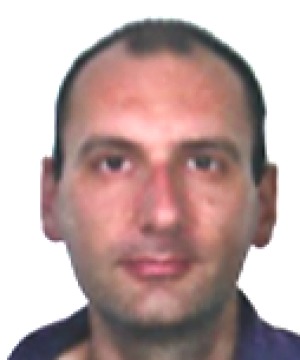 Dario Russo
Dario Russo